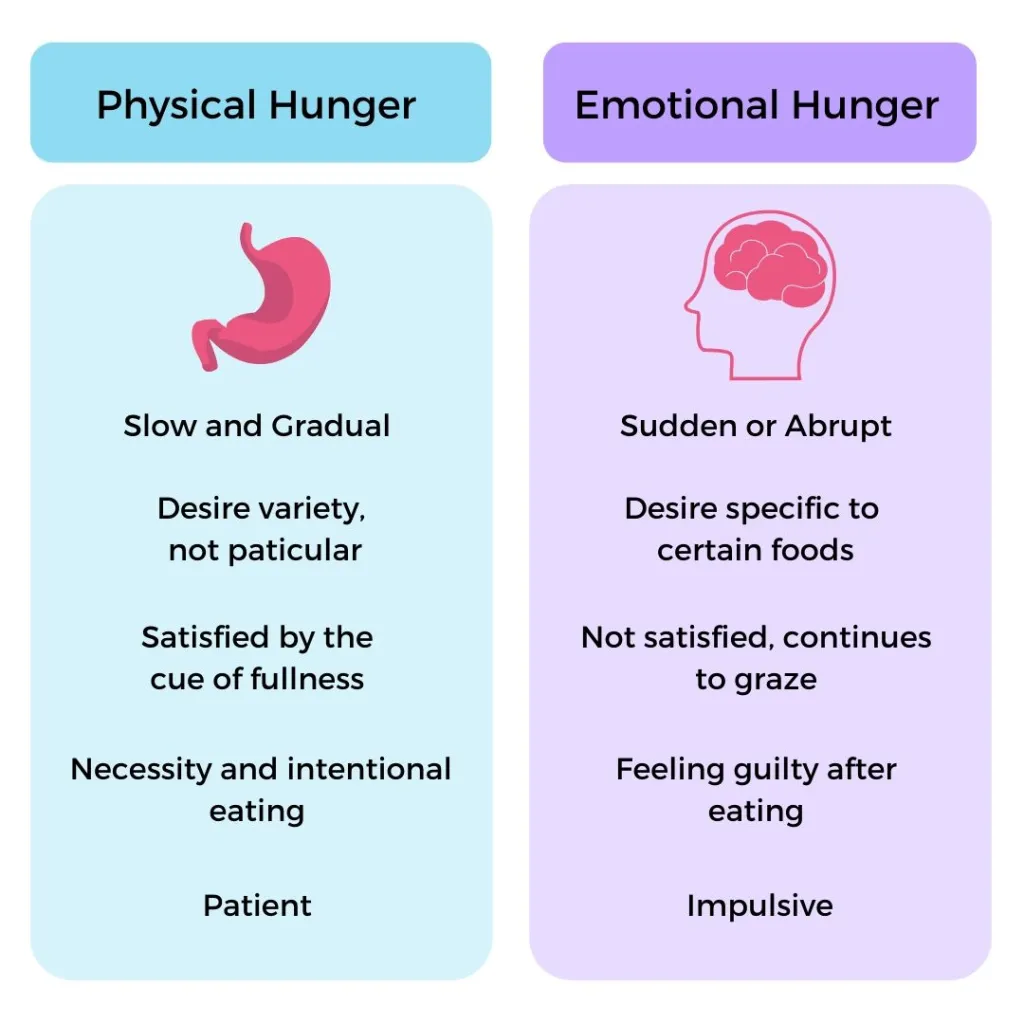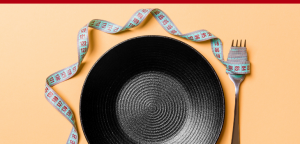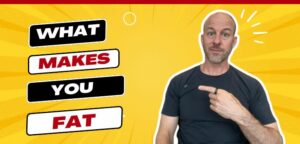My father died in October 2020.
Earlier that year, I had achieved the leanest physique I’ve ever had in my 46 years of being alive. I was shredded. People said I looked as ripped as Bruce Lee. The best part was I felt like I had cracked the code to being super lean while still enjoying my favourite foods.
But when got a call that my father was in the emergency room with poor health, I booked a last-minute flight to Florida to go see him. That started a cycle of stress eating.
When I arrived at my dad’s home in Vero Beach, Florida, the stress of the situation got to me. I started eating uncontrollably. Pizza, key lime pie, ice cream were just a few of the foods that became my everyday medications to lower my stress level.
And my lean body began to put on fat again.
What was strange is that I knew exactly what to do to get and stay lean. But I couldn’t act on the information. I was even tracking my calories at the time. My MyFitnessPal data showed me exactly how much I was eating and where the major source of calories were coming from. But I kept eating. I couldn’t stop myself.
Eventually, I got myself back under control.
This experience formed the foundation of my approach that I use with my clients who struggle with stress eating.
I used to wonder why my high intelligent, high-achieving clients would be unable to control what goes in their mouths – even after I taught them the most flexible approach to getting lean.
If you feel like you use food to manage your emotions and it’s sabotaging your fat loss efforts, you’re not alone. Statistics vary, but the estimates range from 50% to 75% of people eat when they’re stressed.
This is also why strict diets fail.
Restricting your food choices works for a little while but ultimately leads to falling off the wagon. The reason is stress. When you want to eat something but you tell yourself you can’t, it involves mental effort. The effort isn’t a big deal when life is going smoothly. But as soon as you get busy or have a crisis or even go on vacation, you inevitably break down.
If you’re a high-achiever growing your business or career, taking care of your family, and trying to have some fun along the way, you know exactly what I’m talking about.
I have great news. This doesn’t mean that trying to shed your excess pounds is futile. You just need to understand why you turn to food for comfort and what to do to break the cycle.
In this article, I share the 7 steps I used to get in control of my habit of eating while stressed. This is the same strategy I use with my clients to help to break the cycle of finally achieving the body they want.
Let’s dive in.
What Is Stress Eating
Stress eating refers to eating in response to how you feel instead of physical hunger.
Not sure if you eat when you’re stressed?
Ask yourself these questions:
- Do you reach for high-calorie foods when you feel sorry for yourself?
- Do you constantly think about food when you’re anxious or sad?
- Do you sometimes put food in your mouth without realizing it?
- Do you need a beer, cocktail or glass of wine after a long day?
- Are high-calorie foods your reward after a difficult day?
- Do you feel stressed, angry and guilty after eating?
If you answered “yes” to one or more of these questions, then it’s likely that you eat due to your emotional state (rather than physical hunger).
The Difference Between Physical And Stress Hunger
Stress hunger can feel strong – just like physical hunger.
But there are key differences. The list of characteristics below will help you to determine the difference between physical and stress-induced hunger.
Physical Hunger:
- Comes on gradually
- Desire food generally
- Satisfied after eating
- Feeling better after eating
- Intentional
Stress hunger:
- Comes on quickly
- Desire specific foods
- Unsatisfied after eating
- Feeling guilty after eating
- Impulsive

The Science Behind Stress Eating
Before we dive into the strategies to break the cycle, let’s take a moment to understand the science of what’s going on in your brain. I’ve found that teaching my clients this information helps them to not view their stress eating as a personal failure. It’s just a normal response that the majority of people have to stress. The first step to solving a problem is the understand it first.

Stress and Its Sneaky Accomplice, Cortisol
As you might imagine, stress is the key driver of stress eating. It’s your body’s way of saying, “Hey, something’s not right.” Your brain responds by signalling your adrenal glands to release cortisol, the stress hormone. Elevated cortisol nudges you towards seeking pleasure – in this case, delicious, calorie-laden food. It’s not about lacking willpower, it’s simply human biology.
Reward System: The Dopamine Dilemma
Certain emotions (loneliness, anxiety, boredom, sadness) can also prompt us to reach for comfort foods. Why? Because eating them releases dopamine. It’s like a mini-fireworks show in your brain every time you eat that slice of pizza or that tub of ice cream. These foods also train your brain to anticipate them while releasing less dopamine. So indulging becomes less pleasurable over time although the desire to indulge gets stronger – kinda like drugs.
Your Feel-Good Chemical: Serotonin
Serotonin is a neurotransmitter that contributes to feelings of well-being and happiness. Your body makes it using the amino acid tryptophan, which you get from your diet. Many comfort foods, particularly those high in carbohydrates, can cause an insulin spike, which in turn can lead to a temporary increase in tryptophan in the brain. This in turn creates more serotonin and causes you to feel better.
The Hunger Games: Leptin and Ghrelin
When it comes to hunger, two hormones enter the arena: leptin and ghrelin. Leptin is the referee that declares the match over, telling your brain you’re full. Ghrelin is the rowdy fan that keeps asking for more action. But when you’re stressed or sleep-deprived, leptin gets a bit hoarse and ghrelin gets a megaphone. The result? Overeating.
The Gut-Brain Chatter
Finally, we can’t ignore the gut-brain conversation. The state of your gut can influence your mood, thanks to the gut-brain axis. Some gut bacteria can even impact anxiety levels. And no prizes for guessing – healthier gut bacteria prefer plant-based, fibre-rich food over sugary snacks.
Now, you might be thinking, “Ted, this sounds complicated!” But remember, it’s not about blaming yourself – it’s about understanding the “why” so we can navigate the “how.” And that’s exactly what we’re going to tackle next.
7 Steps To Take Charge of Emotional Eating:
Step 1: Identify Physical Hunger vs. Emotional Hunger
Our first step is to identify when your hunger is a physical need or just an emotional impostor. I don’t remember the first time I realized that I was eating even though I was already full. But now it’s something I’m always paying attention to.
If my stomach feels full (or even stuffed) but I’m still raiding the fridge in search of something delicious, I know I’m not actually hungry. I’m stressed.
I recommend keeping a food diary or tracking what you eat with an app like MyFitnessPal for at least two weeks. The point isn’t to see how many calories you’re eating but to develop awareness of what you’re eating and why. This will help you to spot patterns. Is it real hunger, or are you reaching for snacks when you’re stressed, bored, or upset? By recognizing true hunger, you lay the first brick in the foundation of your victory over emotional eating.
Step 2: Identify Your Stress Eating Triggers
Every superhero has a weakness. And for stress eaters, it’s their triggers. Understand what triggers your emotional eating – is it work stress? Loneliness? That weekly catch-up call with your overbearing mother? Identify these triggers, and you’ve just discovered your Kryptonite.
This is the crucial second step in taking charge of emotional eating. Once, you know your triggers, you can create a plan. For example, work stress or poor sleep are my triggers at the moment. Based on this knowledge, I’ve created a plan to anticipate and deal with the strong cravings that come up when I’m stressed out, or under-slept.
Step 3: Develop Healthier Coping Strategies
Now that you know your triggers, arm yourself with stress-management techniques. This could be meditation, deep breathing exercises, or going for a walk. This is how you train to become the master of your emotions, instead of letting them master you.
When I’m feeling stressed from work, which is a weekly occurrence, I’ll go for a walk, meditate or get a massage. All three of these strategies give me a reset and put me back in control of my stress.
You don’t have to use the same strategies. I’ve had clients use saunas or take up musical instruments. But you’ll have to find something to do. Because one thing is certain. You can’t just use willpower to fight your cravings for food. So look to replace eating with another strategy.
Step 4: Commit to Regular Exercise and Adequate Rest
Regular exercise and adequate rest play a crucial role in managing your stress. When I’m working with a client who’s struggling to get on top of their diet due to stress, I tell them that we’re going to focus on sleep and exercise instead. It works.
Once they’re feeling better, it’s much easier to control what you eat. I can’t tell you how many times I’ve seen this happen.
It’s often challenging for my clients because they want to see the number on the scale drop right away. But if I see them working hard and not making progress, I’ll switch strategies.
We know that being sedentary (getting less than 5000 steps per day) and not sleeping enough cause you to eat more.
So commit to regular exercise and a good night’s sleep. Not only will this keep your hunger hormones in check, but exercise also releases endorphins, your natural mood lifters. And a well-rested brain is a well-functioning brain that will naturally make better food choices.
Step 5: Practice Self-Compassion
This is probably the most underrated step. Because slip-ups will happen. It’s a mistake to think that you’re never going to succumb to stress eating ever again. Ironically, this pressure to not “fail” just adds more stress that makes it more likely that you If you slip up, don’t beat yourself up. That just adds to the stress that you’re already under. Celebrate your wins, no matter how small. Remember, you’re human, and all humans have strengths and weaknesses.
Self-flagellation might’ve gotten you to where you’re at in your life. And that’s a good thing. But you’ll have to change your approach if you want to get to the next level. And learning how to ease yourself back into the flow instead of using brute force is part of that transition to becoming a master of your emotions.
Step 6: Be In Charge If You Want To Indulge
Craving comfort food? That’s fine! Remember, we’re aiming for progress, not perfection. And food is one of the great pleasures in life. But learn to satisfy your cravings in moderation. Have a dessert, pizza, pasta, etc. then start eating your protein and veggies again. And when you eat your indulgence, enjoy it. Savour each bite. Remember, you’re the boss here.
There are some folks who may need to go cold turkey for a while. If you find that you have zero self-control when it comes to moderation, then focus on the previous steps before you experiment with this one.
Step 7: Create a Fulfilling Life Outside of Food
Finally, find what excites you, and what ignites your passion. Build a life that’s so engaging, and so exciting that food stops being your main source of pleasure. This isn’t about distraction; it’s about fulfilment. And trust me, a fulfilling life tastes much better than any comfort food.
I had a client come meet me in Mexico for a private retreat. We went scuba diving, ate fried soft-shell crab tacos, did cold plunges, and had an amazing time. He lost 3 lbs over the weekend. But the most memorable moment was when he told me, “I’m not even thinking about food.” That’s the type of life you’re aiming for.
Final Thoughts on Overcoming Emotional Eating
Emotional eating is a habit.
And all habits can be broken. It just takes time for your brain to rewire itself.
One of my clients told me recently that she thought her cravings for Jimmy John’s sandwiches would never go away. But it did. It just took time and consistent effort. This is what’s missing from the weight loss narrative.
People know what to do. But they don’t feel like they have the self-control to do it.
It’s my mission to help you get past the diet and exercise conversation to understand what’s stopping you from the body and health you want. And to show you it’s possible by doing less, not more.
So take action on the steps above.
Most importantly: Never give up!
Related Episodes:
Ted Talk 99: Help! I Can’t Stop Emotional Eating!
Ted Talk 121: Help! I Can’t Stop Stress Eating!
455: How Your Brain Is Making You Fat (And What To Do About It) with Stephan Guyenet
Links Mentioned
Want To Lose Fat, Transform Your Body & Live Your Best Life In 2023?
I’m offering this blueprint that will lead you to a fail-proof long-lasting result with your body, with your health that will help you reach that potential that you have inside and become your own super self.
If you’re interested in working with me, schedule a Breakthrough Call and we will discuss your goals, challenges and see if we are a good fit.
>>Click Here To Schedule A Call With Me Now!









